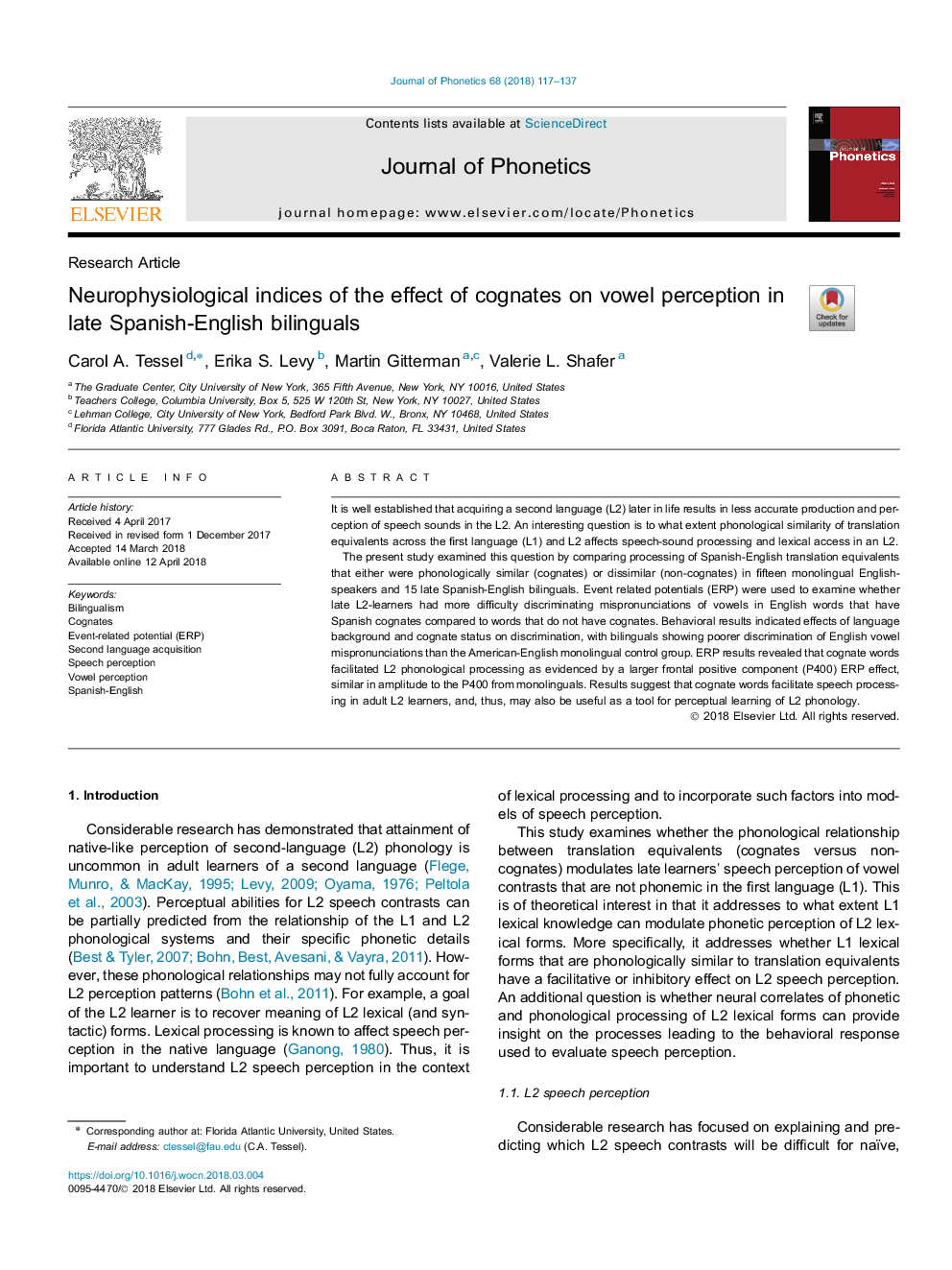| Article ID | Journal | Published Year | Pages | File Type |
|---|---|---|---|---|
| 7532737 | Journal of Phonetics | 2018 | 21 Pages |
Abstract
The present study examined this question by comparing processing of Spanish-English translation equivalents that either were phonologically similar (cognates) or dissimilar (non-cognates) in fifteen monolingual English-speakers and 15 late Spanish-English bilinguals. Event related potentials (ERP) were used to examine whether late L2-learners had more difficulty discriminating mispronunciations of vowels in English words that have Spanish cognates compared to words that do not have cognates. Behavioral results indicated effects of language background and cognate status on discrimination, with bilinguals showing poorer discrimination of English vowel mispronunciations than the American-English monolingual control group. ERP results revealed that cognate words facilitated L2 phonological processing as evidenced by a larger frontal positive component (P400) ERP effect, similar in amplitude to the P400 from monolinguals. Results suggest that cognate words facilitate speech processing in adult L2 learners, and, thus, may also be useful as a tool for perceptual learning of L2 phonology.
Keywords
Related Topics
Social Sciences and Humanities
Arts and Humanities
Language and Linguistics
Authors
Carol A. Tessel, Erika S. Levy, Martin Gitterman, Valerie L. Shafer,
